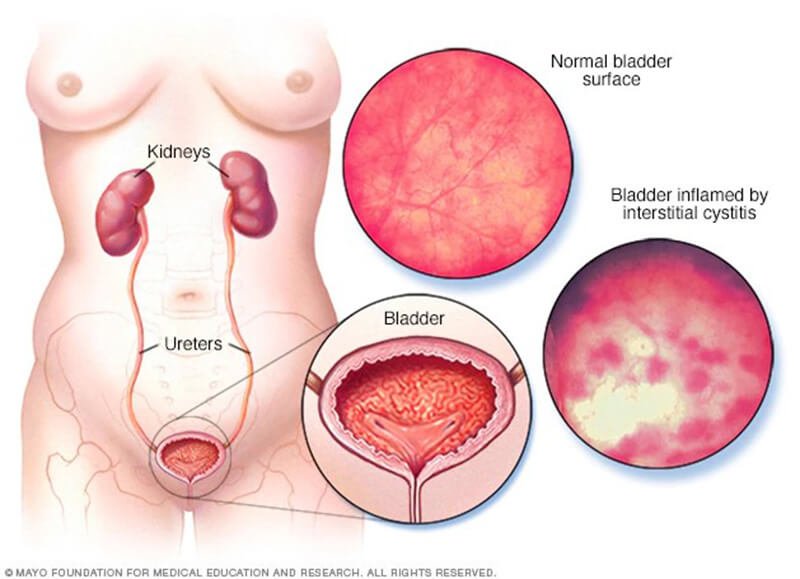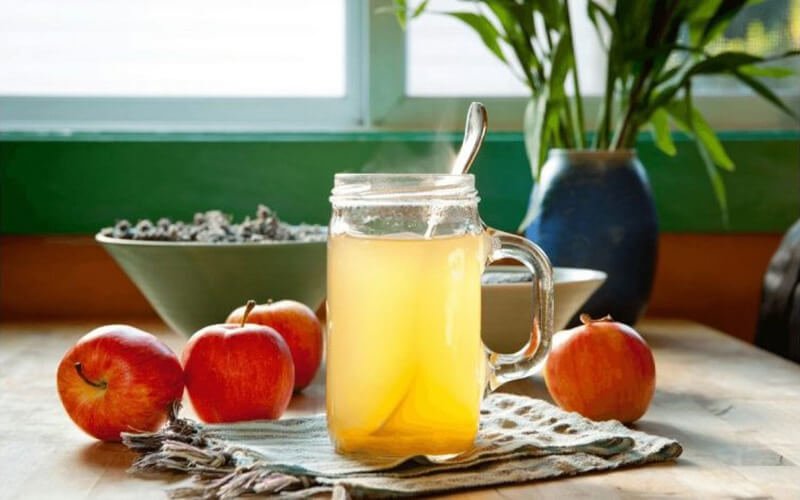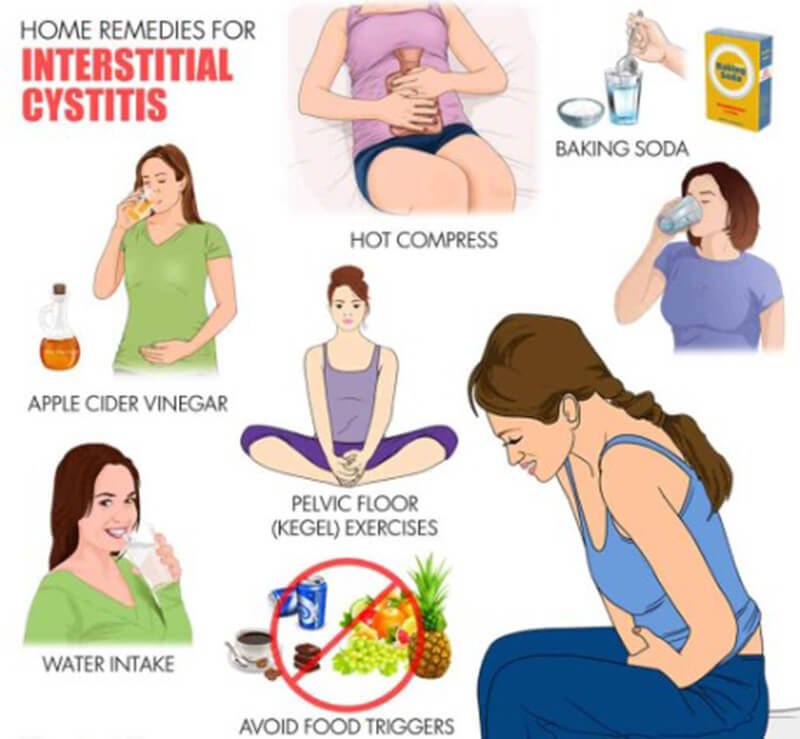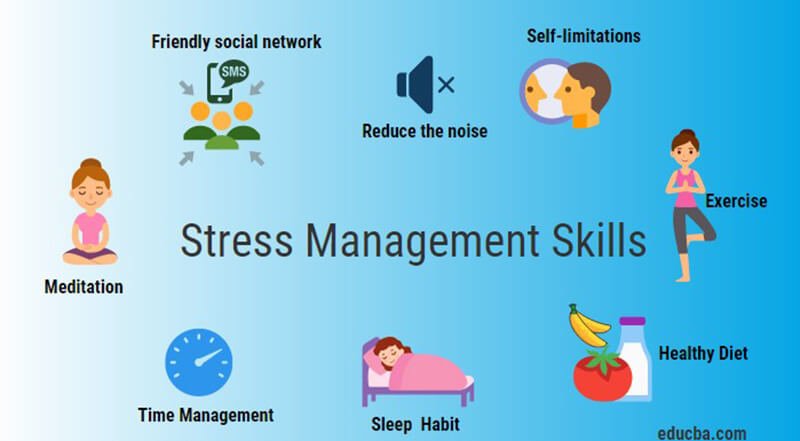Interstitial Cystitis, also referred to as Bladder Infection Syndrome (BPS) (1), Painful Bladder Syndrome (PBS), Overactive Bladder Syndrome (OBS), OCD Treatment (OCD), or Illness bladder syndrome (HBS), is a title that’s given, among other people to describe the frequency, urgency, stress and/or kidney pain that some individuals experience on a continuous basis for several decades. It may be ulcerative and non-ulcerative, based on the existence or lack of ulcerations from the bladder lining. Interstitial Cystitis stocks a lot of the very same symptoms as cystitis, therefore therapy approaches are usually the exact same for both states.

Diagnosis
Your physician may ask for a urine sample that is examined for signs of a urinary tract disease. Ask a thorough bacterial evaluation of your urine out of your physician to find out whether there’s a bacterial origin. Bacterial identification can frequently result in favorable results.
Your physician may add a slender tube with a tiny camera called a cystoscope, through the urethra to examine the within the bladder.
Your physician may take a sample of tissue, also called a biopsy, for additional diagnosis and to rule out other problems. This process is typically done under anesthesia.Frequent urination night and day may require external catheters for men or incontinence pads for women. You should see your doctor for an opinion about incontinence products, depending on your individual needs.
Symptoms
- Pain or pressure in the gut, frequently just above the pubic bone.
- A sense like sharp needles at the bladder.
- A sense of unexplained irritation from the bladder.
- Foul-smelling urine.
- Sexual sex feels painful.
- Frequent urination night and day.
- Prolonged retention of urine.
- Reduced bladder capacity.
- Feelings of pain, anxiety, and tenderness around the uterus and bladder.
- Discomfort or pain in the uterus.
Causes
A massive number of bladder difficulties, which range from painless but regular urination, through to seriously crippling and debilitating kidney pain, are categorized under the overall heading Interstitial Cystitis’.
Other potential causes of these symptoms within Interstitial Cystitis contain physical abnormalities like prolapse of the bladder, vaginal infections, urinary tract infections or disorders, endometriosis, kidney cancer, sexually transmitted diseases, and kidney stones. Tests could be required to rule out these causes.
After blockages, physical abnormalities, and symptom-causing disorders are ruled out, the lack of disease, when coupled with pain or frequent bleeding, is that the over-riding aspect that may cause a diagnosis of Interstitial Cystitis.

Apple Cider Vinegar to Interstitial Cystitis
Apple cider vinegar is extremely helpful for your bladder health. It will help eliminate toxins from the body and maintain your bladder function correctly. Apple cider vinegar also helps to keep the pH level of the human body balanced.
Drinking apple cider vinegar prevents the development of bacteria that cause urinary tract disease. Though apple cider vinegar is acidic, many IC patients have insisted that daily consumption of apple cider vinegar relieved the symptoms of IC.
A case study published in 2013 reported an IC individual whose lifestyle and diet was changed by the doctor to help alleviate her IC symptoms. Her altered diet also contained a diluted beverage of apple cider vinegar prior to foods, and this particular diet slowly helped reduce her moves completely. [5]
Additionally, it will help prevent prostate ailments, which may aggravate the symptoms of IC.
How to utilize Apple Cider Vinegar for Interstitial Cystitis?
- Mix 1 to 2 tsp of raw, unfiltered apple cider vinegar in a glass of water.
- Add a little honey.
- Drink it twice per day before your symptoms have improved.
Notice: Apple cider vinegar can lead to esophageal burns in certain people. Avoid carrying it in the concentrated form. This treatment might not suit everybody and has to be assessed on an individual basis.
Other home remedies for Interstitial Cystitis

1. Hot Compress
- Wrap a thin fabric around a hot water bag.
- Use the compress onto the pelvic floor muscles for 5 minutes.
- Have a break of 5 minutes, then repeat.
- Try this for 20 minutes.
- Repeat two or three times per day, or should you are feeling pain in the bladder and pelvic regions.
Another choice is to use warm, unrefined organic castor oil to the lower abdomen or pelvic region before employing the heating system. This therapy could be performed 3-4 days for 20 minutes.
2. Baking Soda
Simply mix 1/2 into 1 tsp of baking soda into a glass of water and then drink it two or 3 times every day.
Additionally, prepare a baking soda bath by mixing 1 cup of baking soda into a tub half-filled with lukewarm water. Scrub your body inside for 10 minutes. Do this once every day.
3. Pelvic Floor (Kegel) Exercises
- Sit in a quiet location.
- Contract the Kegel muscles for 5 minutes, while breathing normally.
- Relax for 5 minutes, then repeat the muscular contraction.
- Repeat 10 to 20 times per session.
- Do at least 3 times each day.
- Be certain that you drain your bladder before beginning the exercises.
4. Water Intake
To decrease the urgency and frequency to urinate, consider sipping plain water throughout the day rather than drinking a glass or two of water at the same time.
Together with water, drink fruit and vegetable juices, in addition to, soups or broths often to boost your liquid intake.
5. Quit Smoking
The function of cigarette smoke in IC growth is somewhat controversial. A study published in 2005 indicated that smokers had an increased probability of 2.3 days for growing IC symptoms. [8]
Another study published in European Urology in 2007 examined IC symptoms in 981 girls who didn’t find any association between smoking and IC. [9]
6. Turmeric
Additionally, garlic contains antimicrobial properties and lessens the risk of UTIs.
Contain turmeric on your cooking by adding it into your own milk, soup, or curry.
You are able to take curcumin supplements to help decrease inflammation within the body. For the right dosage, seek advice from your physician.
7. Prevent Food Triggers
Questionnaire-based studies one of IC patients have noted that a number of the frequent food triggers which could aggravate IC symptoms include hot foods, chocolate, coffee, fruits (especially citrus), berries, vinegar, and pickled foods, anything with caffeine, carbonated beverages, and alcohol. Artificial sweeteners can aggravate symptoms in certain individuals. [12]
Removing or reducing these foods into your daily diet may help improve your symptoms.

8. Stress Management
Another comparative study of IC patients and wholesome controls demonstrated that higher the degrees of anxiety, higher the pain, and urgency in IC patients but not from the wholesome controls. This association between tension and IC symptoms has been found to increase with the seriousness of this illness. [14]
To decrease anxiety, do something relaxing daily. Meditation, mild exercise, listening to gentle music or possibly a swimming session might help combat anxiety. Actually, you can do whatever you find relaxing.
9. Acupuncture
Acupuncture has been reported to be rather profitable. [15] The most appealing thing about acupuncture is that there’s not any known side impact.
Through an acupuncture session, a professional puts numerous thin needles within the skin at particular points in your body. This helps alleviate pain and other symptoms by rebalancing the flow of energy inside your system.
Laughter also boosts the action of the body’s natural painkillers.
Get your acupuncture therapy done only by an experienced acupuncturist.
Additional Tips
- Keeping a regular exercise regimen can help you manage your symptoms.
- Elect for bladder training which entails timed urination visiting the bathroom based on the clock instead of awaiting the should go. It would be helpful to keep a bladder diary to log the first frequency of urinary urgency and real urination.
- Urinate at routine intervals to decrease the possibility of kidney ailments in addition to kidney issues. Always inhale and after sex in order to reduce the chance of bladder infections and also prevent holding urine from the bladder for a long time.
- Wear loose clothes and prevent belts or clothing that put pressure on your tummy.
- Maintain decent hygiene. It’s necessary to your bladder in addition to your general wellbeing.
- Don’t use douches, soaps, or deodorants on your vaginal area.
- Keep your toilet clean and avoid using filthy bathrooms or public bathrooms.
- Avoid staying in a wet swimsuit for quite a while.
Winding Up
This was our blog on utilizing apple cider vinegar for interstitial cystitis treatment. Additionally, we also discussed various other natural home remedies that can help individuals in treating the same. Hence, it can be concluded that individuals can treat cystitis even by making some small changes in their lifestyle. These include some basic changes such as quitting smoking and managing their stress levels.
With this, our blog on naturally treating interstitial cystitis by untilising apple cider vinegar and other home remedies, ends here. For further information or queries, ping us in the comments section.
Frequently Asked Questions (FAQs)
Q1. How can apple cider vinegar help in treating interstitial cystitis naturally?
Ans. When an individual consumers apple cider vinegar, all the toxins from their body tend to get flushed out. This directly helps in promoting bladder health. Hence, this is the reason why apple cider vinegar is considered as one of the best natural remedy to treat interstitial cystitis.
Q2. What are the other natural ways apart from utilizing apple cider vinegar for interstitial cystitis treatment?
Ans. There are various natural remedies that individuals can employ for treating interstitial cystitis. Some of them include using a hot compress, staying hydrated, and regularly taking up specific pelvic floor exercises.
Q3. Can some lifestyle changes help in naturally treating interstitial cystitis?
Ans. Yes, individual can naturally treat interstitial cystitis by making some basic lifestyle changes. These include quitting smoking, eliminating impulsive eating, practicing stress and anxiety managemnt, etc.










